Tourist photo ops, livestreams of beautiful bouquets, create buzz about Zhejiang 'paradise'
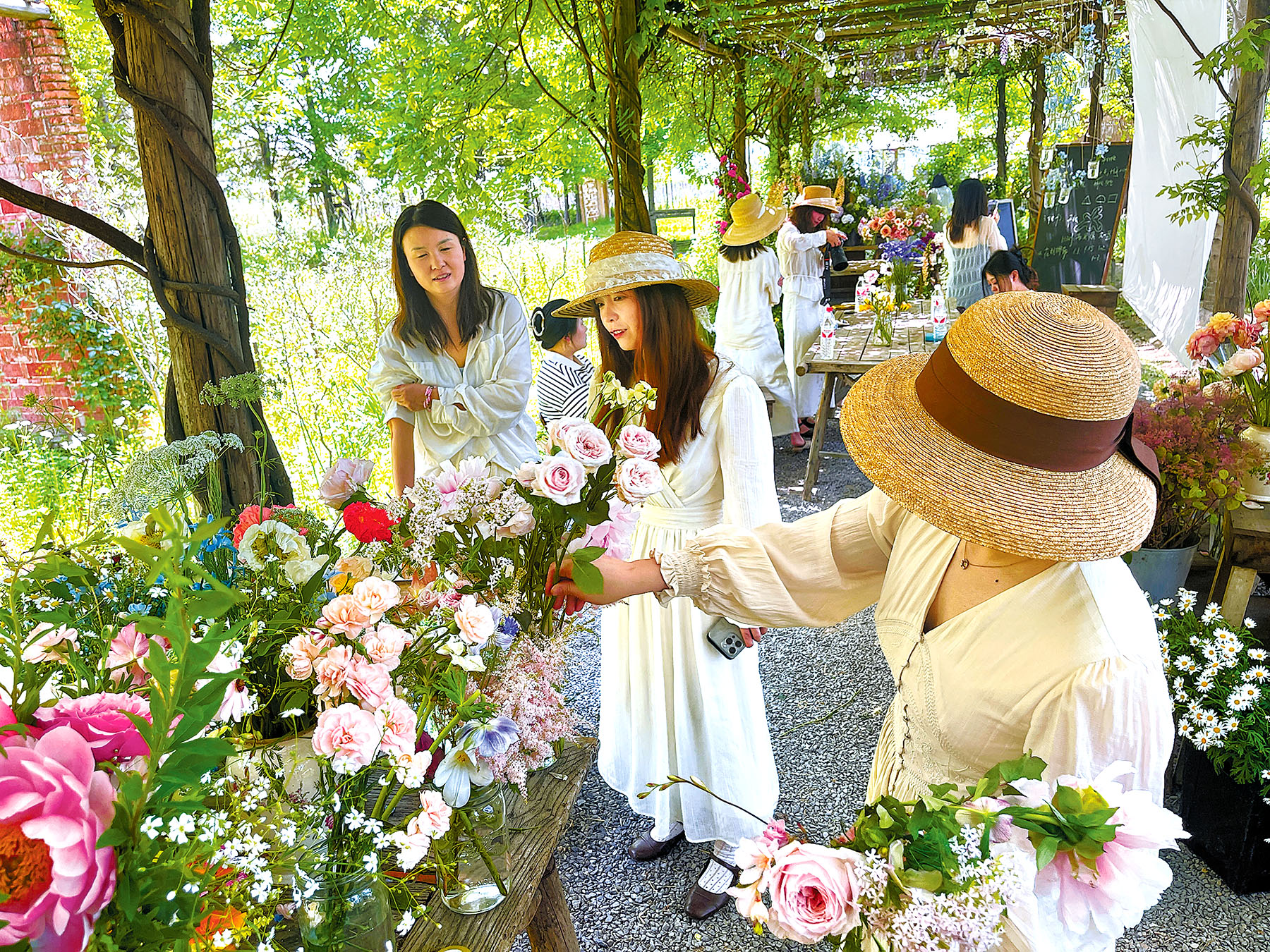
In a quiet corner of Jiaxing, Zhejiang province, a former overgrown plot has been transformed into a natural paradise — lush, unmanicured, and pulsating with color under the sun.
On weekends and holidays, visitors from across the country, especially neighboring Shanghai and Jiangsu province, trek to the flower farm in Changan town, Haining, to admire thousands of plants and blooms that give them memorable moments on social media platforms.
"What sets us apart is not just biodiversity but a philosophy of ecological harmony," said Xu Zhufeng, founder of the Plant Library.
Xu chose Plant Library as the name because the farm is home to a wide variety of species.
"Our goal is to create an environment where plants can grow in harmony with one another, turning the Plant Library into a miniature version of nature," Xu, in his 30s, explained.
READ MORE: Hebi cherry blossom viewing festival a blooming success
Instead of placing plants in neat rows, Xu puts them in the ground following natural patterns — shade-loving plants in cooler areas, sun-seeking ones in open fields.
This approach has earned the site a faithful following.
"Our loyal customers, especially those in commercial photography, tell us it's unlike anywhere else. Here, they find scenery that feels untouched, unexpected," Xu explained.
The thriving business is part of prospering flower plantations across Changan, which have become a pillar industry that has significantly raised residents' income and rejuvenated the town.
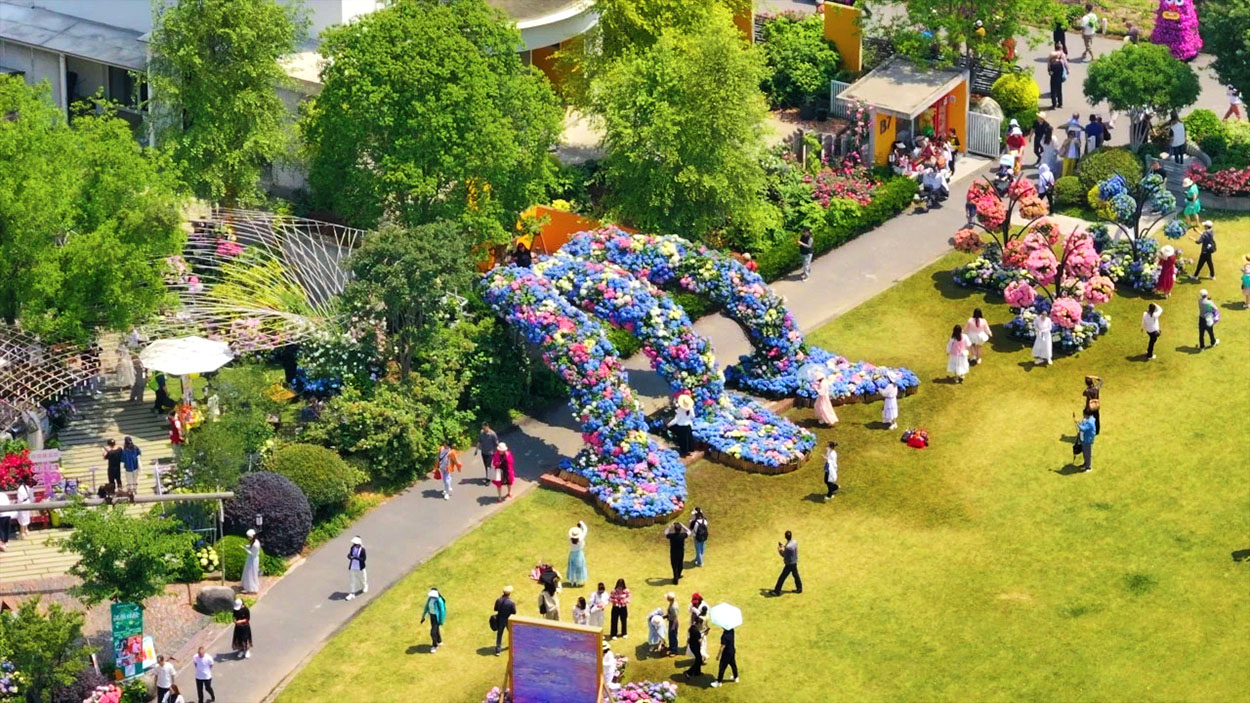
Budding star
Born and raised in Haining, Xu didn't begin his career looking after flowers in fields. After finishing horticulture studies, he spent about five years as a landscape designer at a major design institute in the provincial capital Hangzhou, focusing on garden and park projects.
"I've always believed that even the most ordinary blade of grass can be beautiful, and it's that most people don't look closely enough," he said.
In 2014, his career took a sharp turn. "I made a bouquet for a friend, and posted it on social media, and suddenly people started asking to buy flowers from me," he recalled.
He tentatively expanded his flower-arranging hobby and sold his creations on a shop on e-commerce platform Taobao that he worked for while being a student. His side business quickly became very lucrative. "One day's sales exceeded my monthly salary. That's when I realized this isn't just a sideline but a real business," Xu said.
The success prompted him to leave his stable job and commit to the online flower shop, which remains in operation today.
While business was steady, Xu was frustrated by the limited variety of flowers available on the market.
"Back then, the mainstream flowers were just roses, lilies, and carnations. I thought why can't we grow more ourselves?"
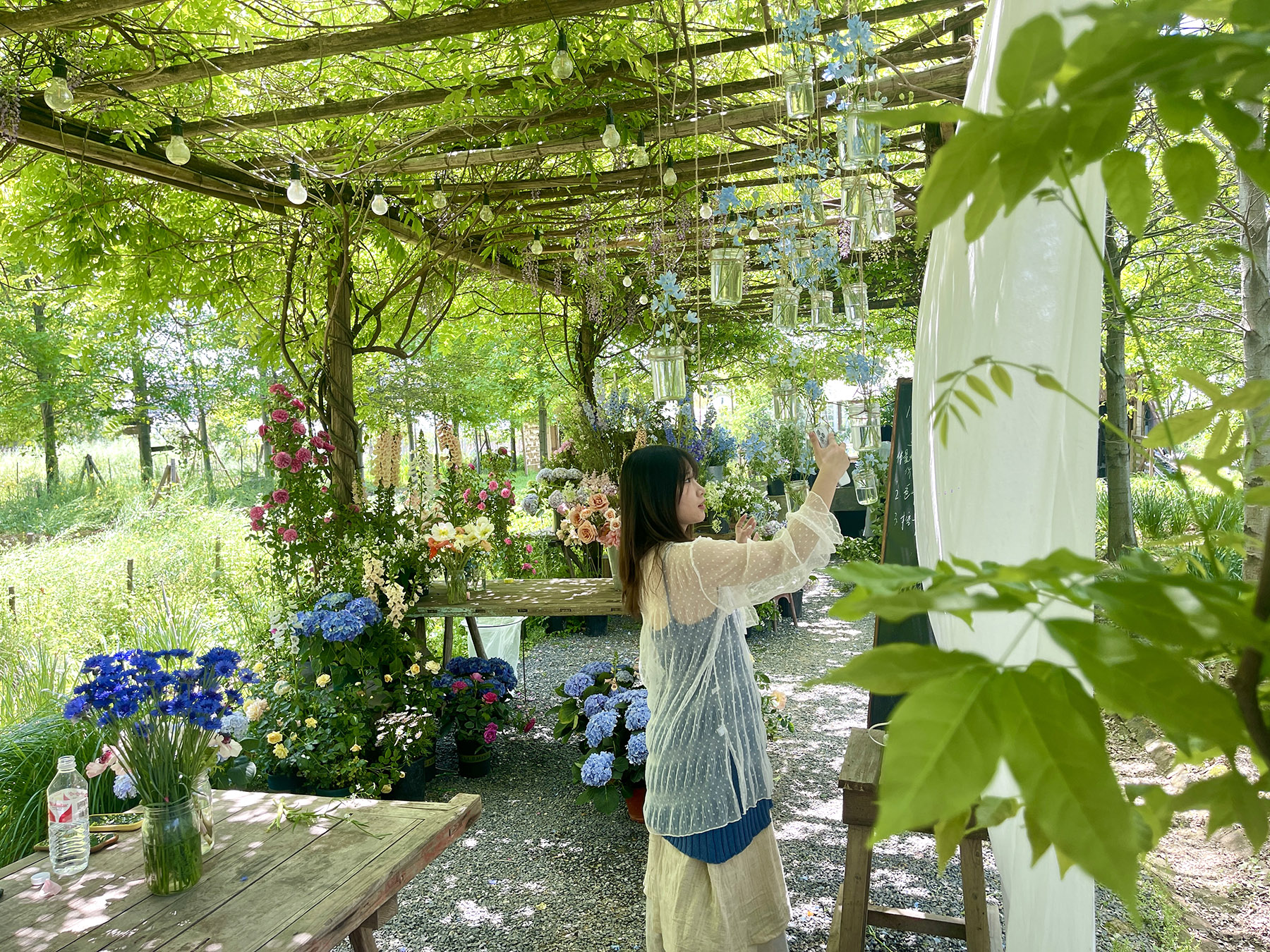
He explored the rural outskirts of Haining, and in 2015 found 13 mu (0.87 hectares) of unused land in Chang'an, a township area known for flower cultivation.
"It was all weeds, no trees — just an empty plot," he recalled. "But the surroundings were like Eden. There was a forest-like serenity, and I felt this could become something special."
Despite being a complete newcomer to commercial agriculture, Xu forged ahead. "I didn't know the first thing about farming," he laughed. "I just brought seeds to the local farmers and asked them to plant them."
"Every day brought new challenges. Communicating with farmers is completely different from managing employees. You need emotional intelligence — sometimes even flattery. It's not about logic; it's about relationships," he said.
Over the years, the plot has evolved into a vibrant ecosystem. Although it was initially intended to supply Xu's shop, the farm started attracting photographers and curious flower lovers. Eventually, he embraced the shift in the business model.
"People came to check it out so often, I figured why not turn it into a destination?" he said.
The Plant Library was transformed into a tourism destination, hosting seasonal flower design classes, photo shoots, and workshops with renowned florists.
During spring and autumn when the facility is in full swing, daily visitors number breaks 400, he said.
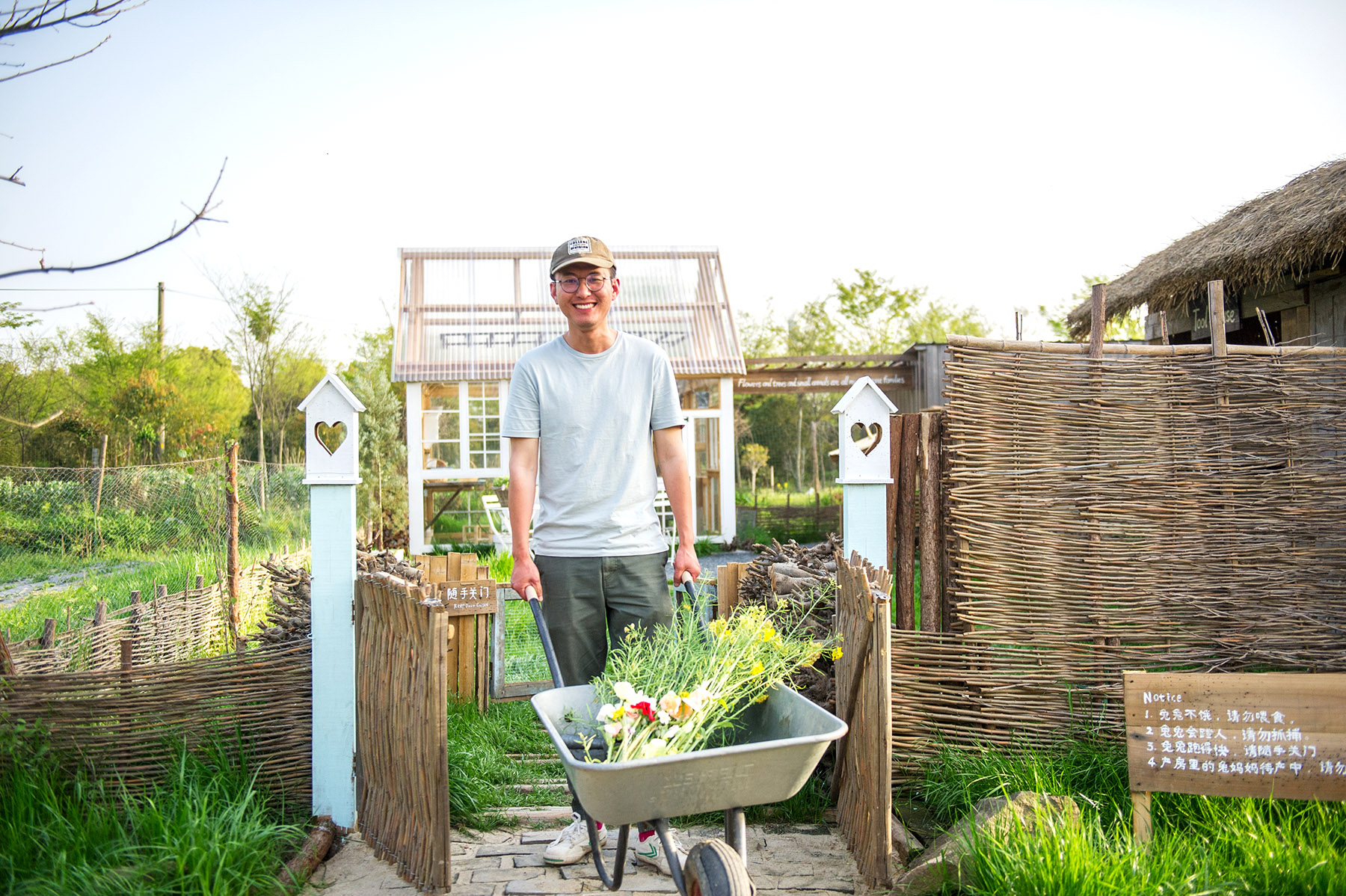
Radiating success
About 30-minute drive away from Xu's place, Lou Yongli is preparing to host her popular livestream in Tianming village.
Inside a greenhouse, Lou, in her 30s, looks in a mirror, and carefully applies eyeliner. At 3 pm, her Douyin livestream account goes live and within minutes, her virtual audience begins to grow.
The livestream has turned Lou into a local celebrity and made her flower business, Yongli Gardening, a thriving enterprise with annual sales exceeding 1 million yuan ($137,200).
"Family, the link is up! Our No 1 bestseller today: multi-bloom lilies! Grab them now for a surprise deal!" she entreats her followers.
Lou beams as she stands framed by a ring of light in a sea of freshly cut flowers. Viewers' comments begin to roll in.
With practiced ease, Lou lifts one bouquet after another to the camera, and confidently gives expert explanations of the different varieties, and care instructions.
She also makes a point of answering questions in the comments area, which illustrates her professional approach to the job.
Before entering the flower business four years ago, Lou ran a clothing store. When the pandemic disrupted offline retail, she accepted an invitation from village officials to take over a few plots of land and try selling flowers online.
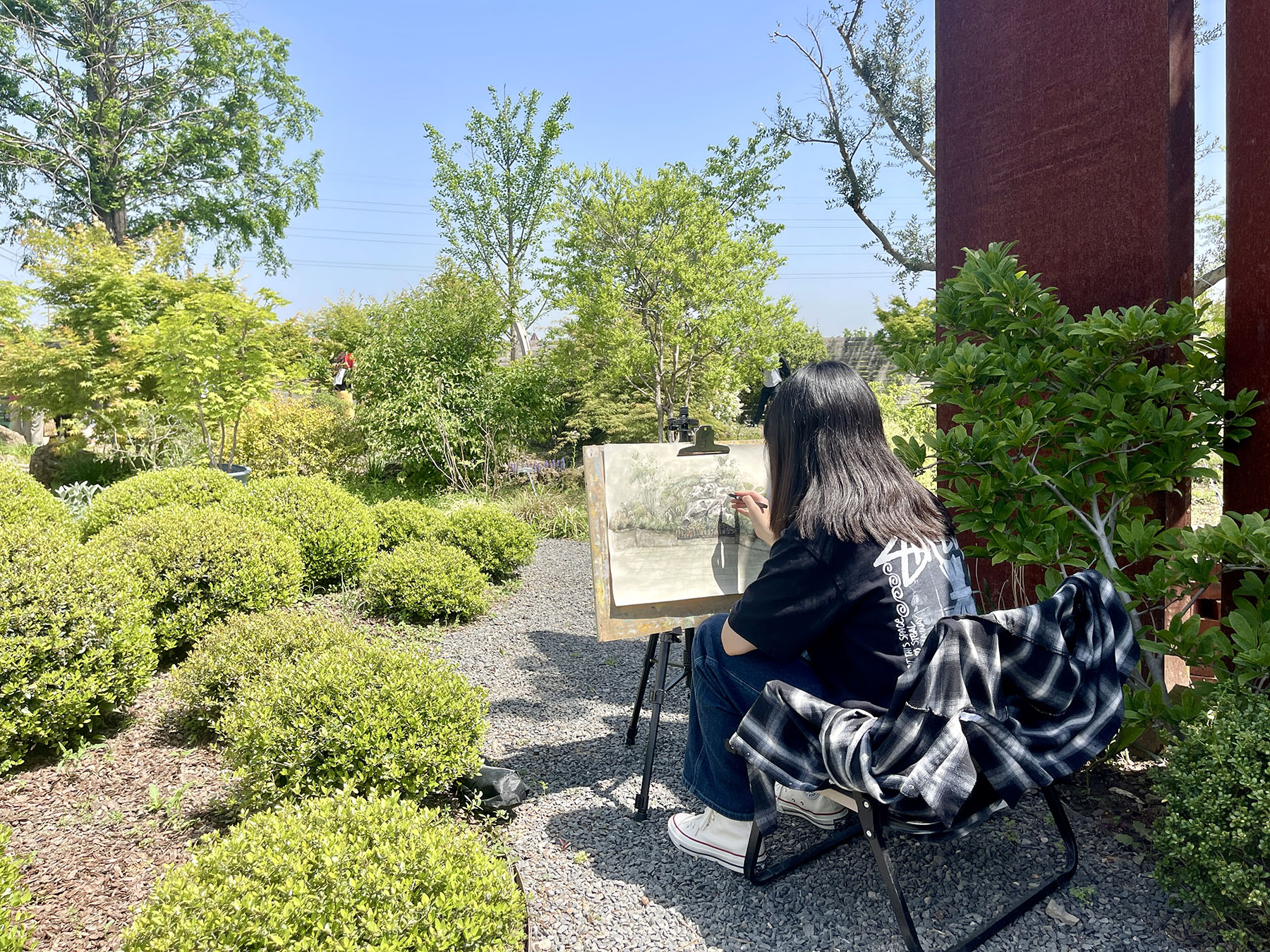
The idea was novel but risky, she thought.
"Livestreaming may seem easy to get into, but turning it into a sustainable business isn't simple," Lou reflected.
In addition to developing her expertise on flowers, she quickly realized that customers weren't just purchasing flowers, but also buying into concepts of beauty and ambience.
That's why Lou invested in polishing her own image. "If the flowers must be pretty, then the person selling them should be too," she reasoned.
Lou's livestreams regularly bring in large audiences and solid sales, but she isn't stopping there.
To expand beyond Douyin, Lou regularly takes photos of her flowers and shares them on WeChat Moments. Customers who have befriended her spot something they like, screenshot it and message her directly to order.
Over time, she has cultivated a loyal customer base and transformed her venture into one of the leading horticulture businesses in Tianming, which is home to more than 100 flower-farming households.
The village sells over two million pots of flowers annually, with a combined output worth nearly 100 million yuan.
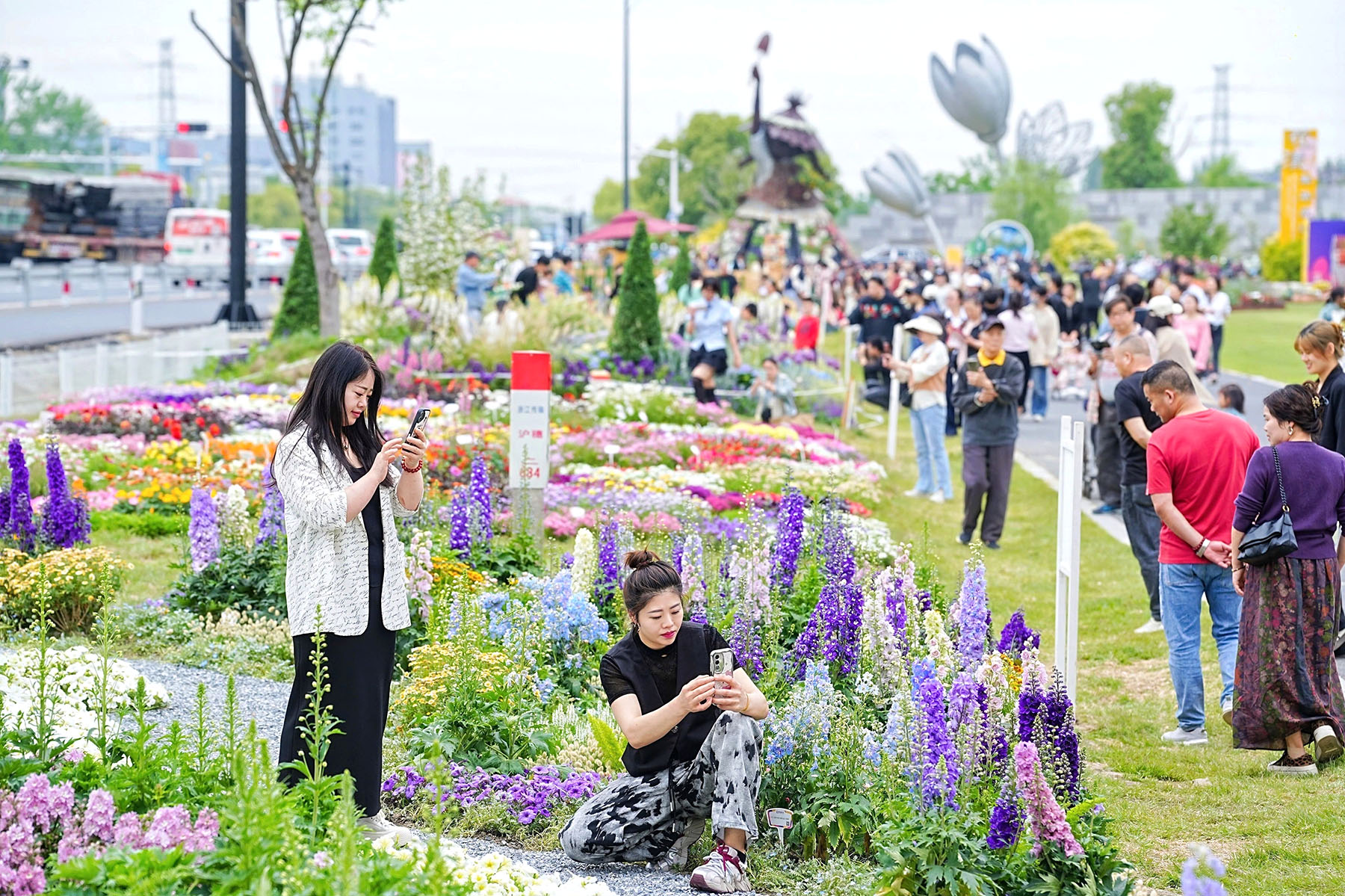
Photo opportunities
A few minutes' drive away, Li Zhengping's garden resembles a French impressionist's canvas. Since the arrival of spring, dozens of multicolored blossoms have emerged, drawing visitors from far and wide to take pictures and trim petals.
"This garden has served both as a showcase of our products and an experimental field," said Li, explaining the original reason for establishing the garden, which has grown to become a favorite spot for flower lovers.
"Our facility stretches 80 meters. When it bloomed in recent weeks, it was like a dream," he said. "People came all the way from Hangzhou and Shanghai just to take pictures. It makes them happy," he observed.
After they post their photos online, more admirers arrive. "This is the best promotion, better than what we promote on our own initiative," Li said, adding the online interest has also greatly boosted flower sales.
A horticulture major, Li moved to Haining in 2010. He settled in Tianming village in 2016, drawn by what he saw as fertile ground for plants and business possibilities.
"This place had a strong foundation for the industry," he said. "The flower planting area was already large, facilities were good, and young people were willing to stay and work. That meant there was potential to gather momentum."
Li began modestly, renting just 6 mu of land from local farmers. "Back then, funds were limited, and I had no sales channels," he admitted.
Since his arrival, Tianming village has come a long way from its earlier days when cut flowers were sold for weddings and ceremonies. Under Li's efforts, it is now known for its potted hydrangeas, lilies, and garden greens — products better suited for online orders and nationwide delivery.
"We designed it this way," Li said.
"Potted plants survive shipping better. And with the land transferred from local villagers, even the elderly have found stable work in nearby greenhouses," he added.
"Since 2019, with the explosion of online videos, and especially during the 2020 homebound economy, our sales have skyrocketed. We surpassed 80 million yuan in total sales," he said. "The demand for land and labor grew with it."
Today, his company Three Lazy Ants is a major rural employer and a showcase for innovation.
"We created a packaging workshop with room for 60 to 70 workers, mostly elderly residents or low-income villagers," Li said.
Each of them earns 3,000 to 5,000 yuan per month.
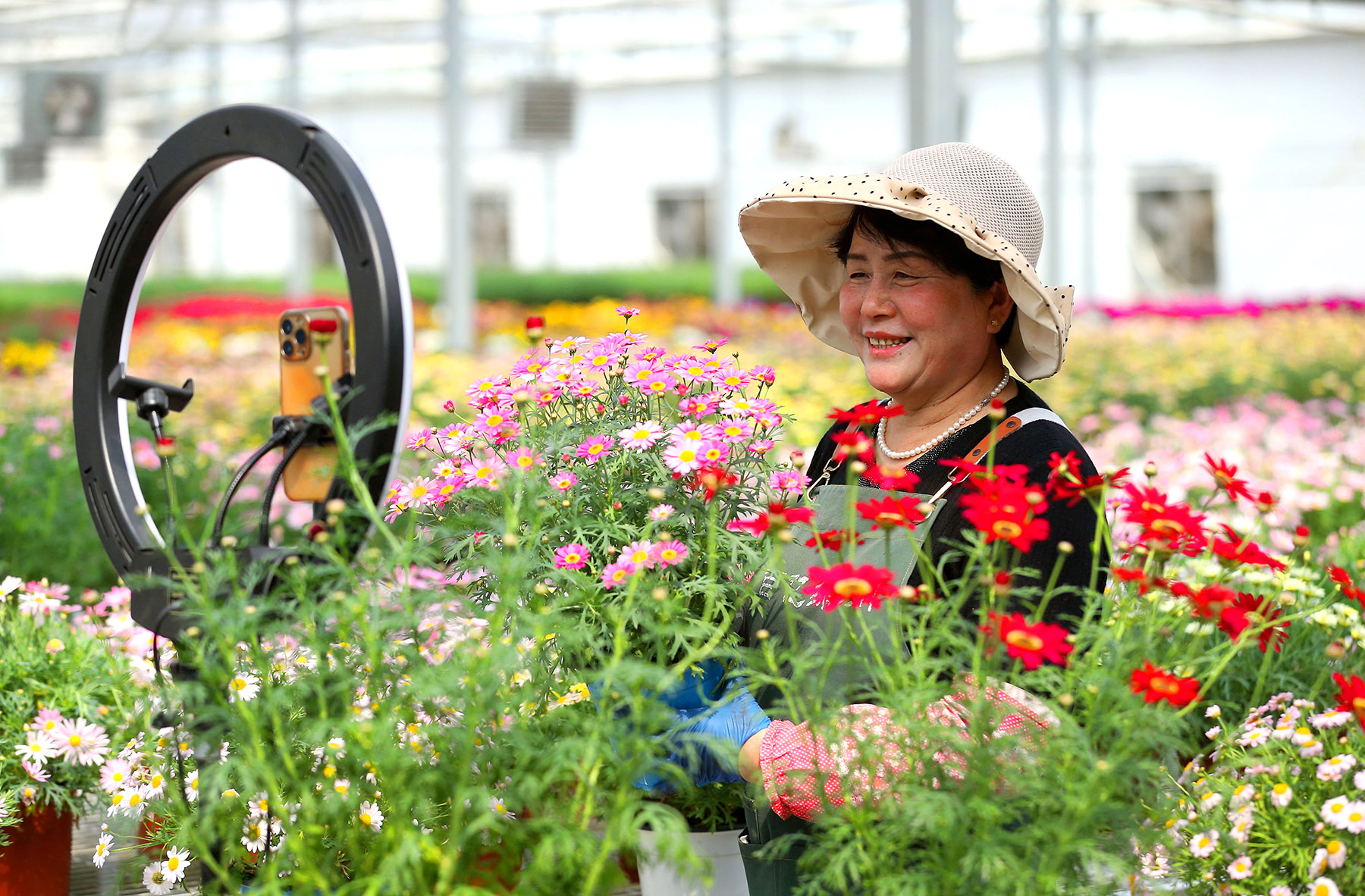
Collective strength
Compared with other major flower production area, such as Southwest China's Yunnan province, the collective strength of the floral business in Haining plays an important role in the success of his own business, Li said.
While Yunnan has better natural conditions for flower plantations, Li believes Haining has advantages in the scale of the industry and its location. He has taken on the role of deputy Party secretary of the village's flower industry, and also helped lift the living standards of neighboring growers.
Li's enterprise, along with several other flower plantations, accounts for 80 percent of the flower trade in Tianming.
"He doesn't just sell his own flowers," said Gao Chenchen, an official with Tianming village. "If nearby farmers can't find enough market channels for their lilies or tulips, Li brings them into his livestreams to help them sell."
Li's work has been recognized by the village. He is a provincial youth entrepreneurship mentor, and his company was named a Zhejiang provincial-level agricultural innovation base in December.
ALSO READ: Roses bloom in Linxia for Valentine's Day sales
What makes his efforts resonant within the community is how deeply he has rooted his ambition in collective growth. "There's beauty in flowers," Li said, "but there's greater beauty in watching a community grow with them."
China is the world's largest producer of flowers. According to data from the China Flower Association, the country currently has nearly 220,000 seedling and flower enterprises, with an annual output value exceeding 520 billion yuan.
The potential has drawn in a rising number of young people who are breathing new life into the industry.
Despite the rising popularity of his farm, Xu remains modest about the "internet celebrity farm" label that has gone viral on social media.
"I don't see it that way. For me, the charm lies in the fact that it's a year-round, continuous process," he said.
Xu said in the future he will focus on sustainability of land, business, and take a creative approach.
"Each season brings a need for new maintenance and new inspiration, which I see as a beautiful cycle. It never ends, and that's the point," he said.
Contact the writer at yangfeiyue@chinadaily.com.cn


